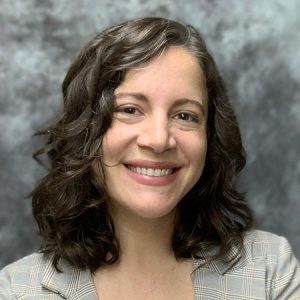Nov. 21, 2024

Story by Ryan Gauthier, rjgauthier@health.missouri.edu
Shape plays a key role in how we understand and interact with the world, influencing everything from language to learning.
What’s less clear is how this process of using shapes to learn language differs across cultures — or for children who have developmental challenges. Thanks to a €10.5 million grant from the European Research Council, an international team of researchers will be exploring these concepts and more.
Caroline Larson, an assistant professor with the Mizzou Department of Speech, Language and Hearing Sciences, is one of six researchers working on the SHAPE project. Larson will work with a team of international collaborators to examine populations in five European countries and the U.S. The researchers will combine their expertise and explore aspects related to vision, child development, language and cognition, sign language and neurodiverse populations.
Around age 2, children start to use shapes to learn words rather than categorizing based on colors, materials, sizes or textures — often called the “shape bias.” For example, if they see a round shape and hear the word “ball,” they might begin to think of all round objects as balls.
But not all children develop this shape bias in the same way. Children with developmental challenges might find it harder to use shapes to learn words, and scientists haven’t fully explored why this might happen.
The goal of the SHAPE project is to study how different languages around the world use shapes in words, how our understanding of shapes connects with language, and why some children struggle with this connection.
“We’re leveraging expertise from linguist, developmental, and clinical scientists to develop an integrated answer to a fundamental question about how humans engage with the world and each other,” Larson said. “My portion of the project will characterize developmental patterns in young children with autism and developmental language disorder, contributing new knowledge of these conditions and ensuring that we capture neurodiversity.”
Larson said the funding should create training and research opportunities for Mizzou undergraduate and graduate students. She also plans to recruit a lab manager and potential PhD student who can help complete the project.
The SHAPE group is among 57 projects chosen to receive a total of €571 million to address complex scientific problems across a wide range of disciplines. The ERC Synergy Grants foster collaboration between top scientists, encouraging them to work together and share their knowledge to make new discoveries. This funding is part of the European Union’s Horizon Europe research and innovation program.
